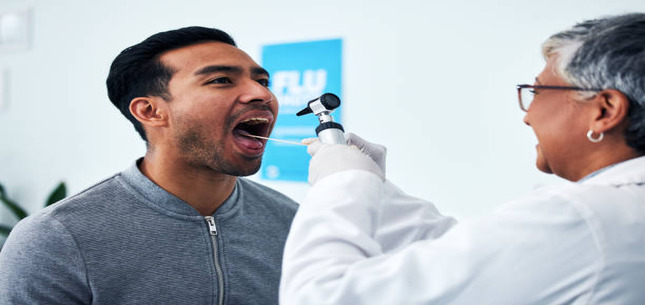Early Signs of Oral Cancer You Should Never Ignore

Oral cancer can be a life-threatening condition if not detected and treated early. While many people focus on cavities and gum disease when thinking about oral health, it’s crucial to be aware of more serious risks like oral cancer. The earlier it is caught, the better the chance of successful treatment. Knowing what signs to watch for and when to seek professional help can make all the difference.
Talk to a Trusted Dentist in North Edmonton
If you experience unusual changes in your mouth—such as sores that don’t heal or persistent pain—it’s important to visit a dentist in North Edmonton right away. Regular dental visits are essential not only for cleaning and cavity checks but also for detecting potential signs of oral cancer.
A qualified dentist can identify abnormalities in your gums, tongue, lips, and throat that may indicate a more serious issue. Catching the symptoms early could help prevent the cancer from spreading, increasing the chances of successful treatment and recovery.
Importance of Oral Cancer Screening in Edmonton
Routine oral cancer screening in Edmonton is a preventive measure that many people overlook. During a screening, your dentist will examine your mouth and surrounding tissues for signs of abnormal cell growth. They might use specialized tools or dyes to highlight suspicious areas.
Oral cancer screenings are quick, painless, and can be life-saving. Here are a few symptoms your dentist will look for:
-
Red or white patches on the tongue, gums, or inner cheeks
-
Sores that don’t heal within two weeks
-
Unexplained bleeding in the mouth
-
Lumps, thickening, or rough spots in the mouth or neck
-
Persistent sore throat or the feeling of something stuck in your throat
-
Difficulty chewing, swallowing, or moving the jaw or tongue
-
Numbness in the mouth or lips
If any of these symptoms persist for more than two weeks, even if they seem minor, you should get them checked immediately.
Why See a Dentist Near You for Regular Screenings?
Finding a dentist near you for regular checkups and screenings offers numerous benefits, especially when it comes to early detection of oral cancer. Here’s why staying local helps:
-
Timely Care: A nearby dentist means easier appointment scheduling and prompt follow-up if any concerns arise.
-
Consistency: Seeing the same dental team regularly allows them to track changes in your oral health over time.
-
Accessibility: If a biopsy or specialist referral is needed, your local dentist can coordinate care more efficiently.
-
Comfort: You’re more likely to keep appointments and follow through on recommendations when your dental office is convenient.
Don’t wait until symptoms become severe. Preventive care, including oral cancer screenings, is more effective when it’s a regular part of your health routine.
Who Is at Risk for Oral Cancer?
While anyone can develop oral cancer, certain factors increase your risk:
-
Tobacco use: Smoking or chewing tobacco significantly increases the risk.
-
Alcohol consumption: Heavy drinking, especially in combination with tobacco use, raises your chances.
-
HPV infection: The human papillomavirus (particularly HPV-16) is linked to an increased risk.
-
Sun exposure: Prolonged sun exposure can lead to lip cancer.
-
Age and gender: Men over 50 are at higher risk, though rates in younger populations are rising.
Awareness of these risk factors, combined with regular screenings, can help reduce the threat of serious outcomes.
Take Action with Beverly Heights Dental
At Beverly Heights Dental, the health and safety of patients are always the top priority. Their experienced team is trained in oral cancer screening in Edmonton and uses the latest technology to catch early warning signs before they become serious health issues.
Here’s what you can expect from a visit to Beverly Heights Dental:
-
Comprehensive exams that include oral cancer screenings
-
A caring and professional dental team
-
Personalized care based on your medical and dental history
-
Timely referrals to specialists if further investigation is needed
Prevention and early detection are key in the fight against oral cancer, and the team at Beverly Heights Dental is here to support you every step of the way.
Final Thoughts
Oral cancer is a serious but often preventable and treatable condition—especially when caught early. Understanding the warning signs and visiting your dentist in North Edmonton for regular checkups can dramatically reduce your risk. Incorporating oral cancer screening in Edmonton into your dental visits ensures that any potential issues are identified early, giving you the best chance for successful treatment.
If you’re searching for a dentist near you who prioritizes comprehensive care, look no further than Beverly Heights Dental. They’re committed to helping you maintain not only a healthy smile but also overall well-being through proactive, preventive dental services.
Explore more about dental care advancements at The Global Newz.







